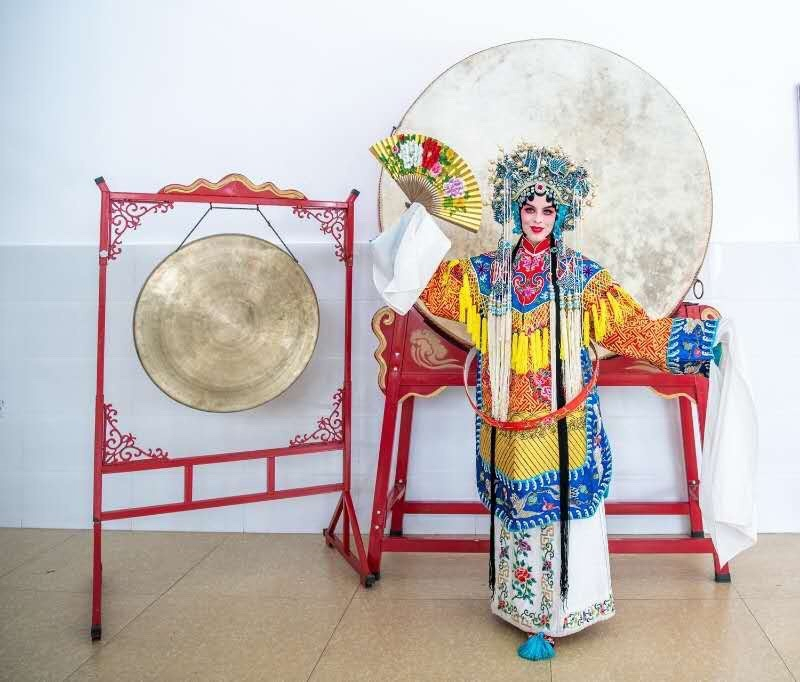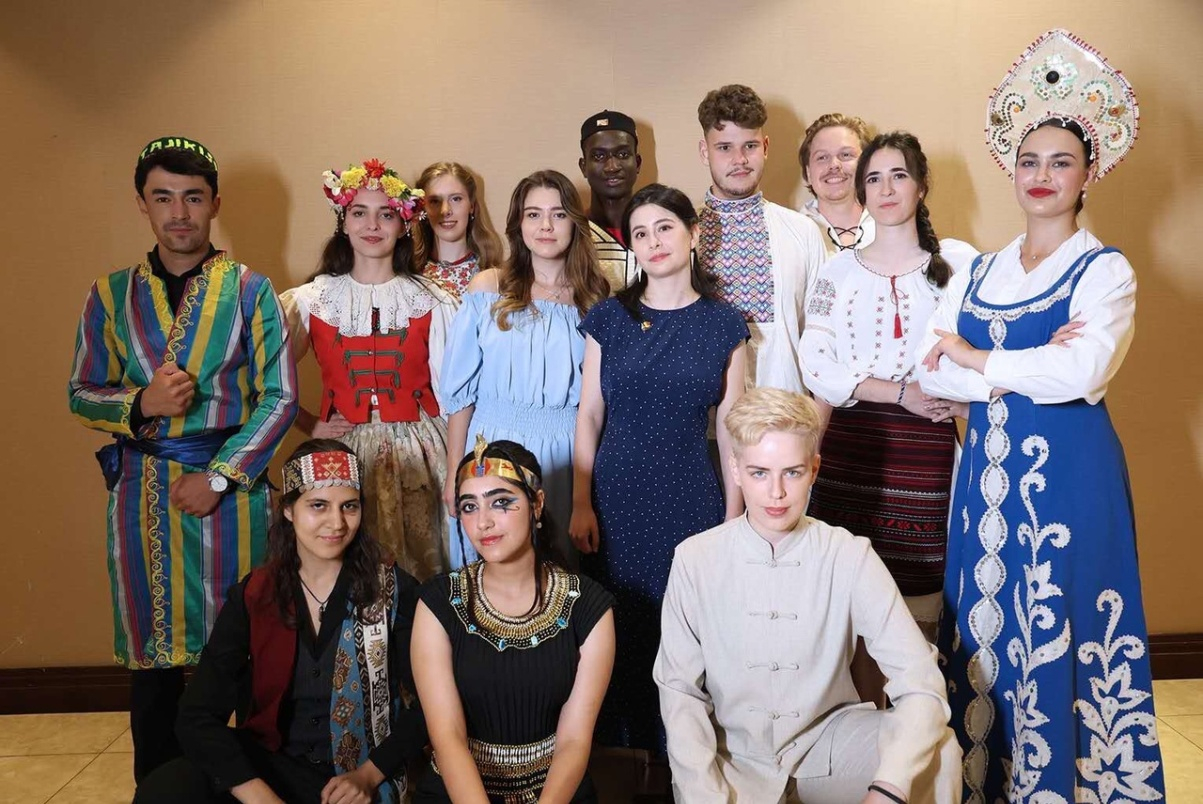St Petersburg University student named the best among participants from Europe at the Chinese Bridge student contest
Daria Oganesova, a St Petersburg University student, has been named the first among the participants from Europe at the 22nd Chinese Bridge student contest. In total, about 150 students from 120 countries took part in the annual Chinese language competition for non-native university students.
Kristina Bulatnikova, a third-year bachelor’s student in the Chinese Philology programme at St Petersburg University, was also ranked among the top five best Chinese language learners among the participants from Russia. She became a finalist in the competition.

Daria Oganesova has been named among the fifteen finalists. We asked her to tell us about the global stage of the contest.
Could you please tell us where the final of the contest was held and what sections it consisted of?
The final of the 22nd Chinese Bridge contest was held in Guangxi Province of China. It consisted of four rounds. The city of Baise hosted the first (qualifying) round, which included the following tasks: an essay on the topic ‘The Chinese Language and Me’; a written test on Chinese Studies; and a talent presentation. Thirty strongest participants were selected in this round.
The further rounds were held in Nanning, the capital city of Guangxi Province. First, fifteen strongest contestants were selected; then — the top five; and, finally, the overall winner of the contest was named.
How were the contestants received in China?
The contestants from all over the planet were warmly received and made welcome. We were accommodated in good hotels and were offered an extensive cultural programme. We spent three days in Beijing, where we visited: the Great Wall of China; the Shenyang Imperial Palace (Gu Gong) in the Forbidden City; and the Olympic Stadium — the Bird’s Nest. In Guangxi Province, we visited a lot of natural landmarks. The programme also featured acquaintances with some of the ethnic minorities of Guangxi Province: Zhuang; Miao; Yao; and Dong. We were shown local traditional performing arts: Guangxi lion dance and dragon dance, and the mountain songs (Shan’ge). We also learned about tea culture and local delicacies made of glutinous rice.
As a reminder, earlier this year, Daria Oganesova and Kristina Bulatnikova became winners in the All-Russian stage of the Chinese Bridge student contest.
In what language did you communicate with other contestants?
The language of communication depended on the person you talk to because I am fluent in Chinese. With participants from Asian and African countries, we communicated mainly in Chinese, while with European participants we often spoke in English due to their low level of spoken Chinese. The relationship with fellow contestants was amicable. Everyone was very positive and there was no competitive jealousy at all.
Could you please share what tasks were the most challenging and the most enjoyable for you?
The most challenging part for me was the written tests in Chinese Studies during the selection of the fifteen strongest and in the top five finalists’ round. We had not been trained for such tests in any way; although in previous years, special preparatory classes were organised for the contest participants. The questions were very specific; even many native Chinese struggled to answer them.
The most enjoyable tasks for me were those directly related to the Chinese language. These included: monologues in Chinese; a cultural performance in the qualifying round; and a sketch that we performed together with contestants from Europe at the selection of the fifteen strongest. Unfortunately, there were no such challenges as speech improvisation or debates, which featured at the Russian stages of the contest. It appears that the contestants who took the first places could hardly have won at the All-Russian stage, because it was more challenging.
You performed the song "Scarlet Actress" (赤伶) in the qualifying round as a creative performance task. What was the reaction of the judges and the Chinese audience?
You can follow the competition on the official website of the Chinese Bridge student contest.
The song "Scarlet Actress" features a chorus performed in the classical Peking opera singing style. In China, combining Chinese opera and pop music has become a popular trend. The themes of ancient Chinese history, classical music and traditional operatic singing are used as emblems of national identity. My performance was very enthusiastically received by the jury. I was given the highest possible score — 15 out of 15. After the performance, many contestants and Chinese volunteers wanted to take a selfie with me. My efforts in presenting Chinese cultural heritage — a source of Chinese national pride — at the international student contest were highly appreciated.
Can you say that participating in the contest was useful?
It was definitely a rewarding experience. Firstly, we were shown a lot of interesting things. It was for the first time I had been able to visit the Shenyang Imperial Palace and Guangxi Province, see so many places of natural beauty and learn a lot about local customs and traditions. Secondly, I got to know people from many countries across the globe. It was truly a memorable experience of international communication. We became friends with many of the contestants. We still keep in touch with each other, fondly recalling the time we spent together. Thirdly, it was an opportunity to prove yourselves and demonstrate your level of Chinese, which is always stimulating and motivating!
What advice would you give to students in Russia who will be competing next year?
I would like to warn our students that to win in this competition, you cannot rely only on your Chinese language proficiency. I would also advise that students should try to get the most out of this experience: improve their Chinese and English; expand their knowledge of Chinese culture; visit interesting places; and meet people from all over the world to name but a few. To prepare for the contest, they would need to brush up their skills of writing essays in Chinese and learn as many chengyu (Chinese idioms) as possible. As for the creative performance, it should be entertaining and catchy. It is also advisable that it should include speech; for instance, it could be: singing; recitation; or Chinese comic dialogue Xiangsheng.
And importantly, do not get upset if you are not named among the strongest contestants. It is just a competition: just do your best. Anyway, if you put aside the competitive part of the contest, it is a valuable experience that will broaden your cultural horizons and bring you new impressions, knowledge and friends.
The qualifying rounds of the Chinese Bridge student contest in North-West Russia are to take place in spring 2024. We invite students majoring in Chinese Studies to enter the competition and use it as an extra incentive to learn the language.





